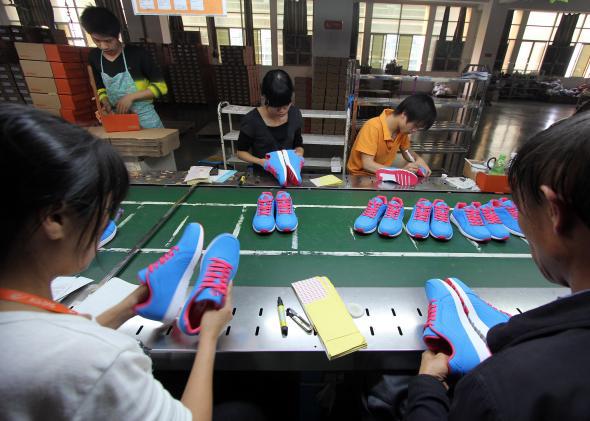Branko Milanovic published a great World Bank working paper a while back making the point that despite the growing discourse around exploding levels of income inequality, the reality is that on a global basis inequality is falling. This is a corollary to a point I’ve made several times before, namely that despite severe struggles in the United States and most of Europe associated with the 2008 financial crisis, in global terms living standards are higher than they’ve ever been.
But while it’s both true and wonderful that average living standards in China and India are substantially higher than they were 10 years ago that doesn’t change the fact that average living standards in the United States and Italy seem in many ways to have fallen. This represents a serious failure of American and Italian policymakers.
And I would say much the same about the inequality talking point. A number of right-of-center commentators seem very enthusiastic about the idea of citing the falling global Gini coefficient factoid as a rejoinder to worries about rising inequality in rich countries.
This makes almost no sense. After all, the source of the fall in global inequality is not some mystery. It’s China. We’ve seen a number of countries go through spurts of catch-up growth in which they improve their domestic public policy and rapidly industrialize by importing state of the art technology from the rest of the world. It happened in Japan; it happened in South Korea; it happened in Taiwan. And now it’s happening in China. And the thing about China is that it’s really enormous. When Korea got on the global economic convergence bus, that was a story about South Korea. But China is so large that it moves global economic aggregates. And it’s fantastic news for human welfare that such a large country has improved its living standards so much. It’s also good news that the similarly large country of India has improved its living standards, albeit not as rapidly as China has. Great stuff. Seriously. Read Charles Kenny’s book.
But nobody would say that the Great Leap Forward wasn’t so bad because it coincided with a period of broadly shared prosperity in the West. It’s just different stuff happening in different places. It’s true that it would be a mistake to get excessively hung up on any particular summary statistic of inequality. But the broad facts that stagnating living standards in rich countries are coinciding with a falling share of national income going to the bottom 80 percent or so of the population aren’t in serious dispute and they’re not “compensated for” in any policy-relevant sense by the success of Chinese development policy.
In fact I’d go further—insofar as your interest is in maintaining a policy framework in rich countries that’s friendly to continued uplift of the global poor the absolute worst possible thing you can do is to run around implying that there’s a zero-sum trade-off between the interests of the American middle class and Asian peasants.
